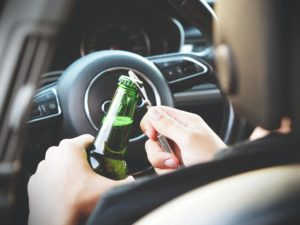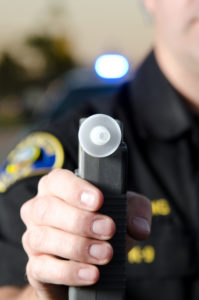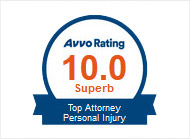How a DWI May Affect Employment
In New Jersey, a driver with a blood alcohol concentration of 0.08% or higher is considered to be driving while intoxicated. A DWI in this particular state is a traffic offense and not an indictable crime and thus cannot result in a misdemeanor or felony for that violation alone. Still, Morristown criminal defense lawyers generally recommend representation in order to limit the penalties and any potential effect that it could have on future employment.
Driving While Intoxicated: The Terminology
The state of New Jersey has a driving while intoxicated statute designed to prevent people from operating a motor vehicle while affected by alcohol or drugs. All 50 states have similar statutes, and the offense is often referred to as “driving under the influence” or “driving while impaired.” You may often see these terms used interchangeably, and within the context of New Jersey, they all refer to the same DWI statute.
A DWI Is a Traffic Offense
New Jersey is one of only two states—the other being New York—in which a DWI is a traffic offense and not a criminal offense. A DWI can still result in a criminal offense if there are injuries involved, but the majority of DWI citations do not result in criminal charges. Nevertheless, a DWI can result in serious penalties, including:
- Fines
- Jail time
- Automobile insurance surcharges
- Substance abuse assessment and education
- Temporary or permanent loss of driving privileges
 May an Employer Inquire About a DWI Conviction?
May an Employer Inquire About a DWI Conviction?
It depends on the circumstances. An employer does have the right—depending on the phase of the hiring process—to ask you about criminal charges and to perform a criminal background check. But since a DWI is a motor vehicle offense in New Jersey and not a criminal offense, you do not have to disclose the arrest or the charges, and any conviction will not show up on a criminal report. It will, however, show up on your Driver History Abstract, which is commonly referred to as a driving record, and a clean driving record is a prerequisite to some jobs.
May an Employer Request a Driving History Abstract?
Municipalities are permitted to request your driving record without restriction, and they can therefore choose not to hire you based on a DWI. Other employers have limited access based on what the position entails. If the job involves operating a vehicle that requires a license, then the employer can ask you if you have been charged with a DWI and can verify that information through the DMV. The employer can choose not to hire you based on that information and may in some cases have an obligation not to hire you.
How Long Does a DWI Stay on Your Record?
In the state of New Jersey, a DWI remains on your driving history abstract forever. This is done so that previous violations can result in harsher penalties for subsequent violations. The law in this state does include what is called a 10-year step-down provision. After 10 years have passed from a previous violation, a subsequent violation will be assessed as if it were the first infraction.
There are no such rules governing employers. If an employer is hiring you to operate a motor vehicle, it has the right to assess a DWI conviction that is older than 10 years. It is generally believed that employers place greater emphasis on recent history, but they are not obligated to do so.
Local Representation in New Jersey
It is often beneficial for anyone charged with a DWI in New Jersey to hire an attorney to protect their legal rights and mitigate any penalties that may be faced. If you or a loved one is in this situation, then it could be a good idea to contact the law office of Gregg A. Wisotsky. We can provide you with a consultation and, if needed, local representation from a Morristown criminal defense lawyer. To schedule an appointment, call us at 973-898-0161 or contact us online.



 Failing a blood test or breath test doesn’t necessarily guarantee a guilty conviction. Your DUI lawyer may be able to cast doubt on the accuracy of the test results. The most common reason for dismissing a DUI case based on sobriety test accuracy is if the officer used broken equipment or failed to calibrate the equipment correctly. Certain medications and foods can also impair the results of a Breathalyzer.
Failing a blood test or breath test doesn’t necessarily guarantee a guilty conviction. Your DUI lawyer may be able to cast doubt on the accuracy of the test results. The most common reason for dismissing a DUI case based on sobriety test accuracy is if the officer used broken equipment or failed to calibrate the equipment correctly. Certain medications and foods can also impair the results of a Breathalyzer. DWI and Reckless Driving Charges
DWI and Reckless Driving Charges Your lawyer may also be able to cast doubt on the amount of alcohol in your system. If the traffic stop used nonstandard sobriety tests like asking you to repeat the alphabet backwards, it is very hard for the prosecutors to prove you were under the influence. These sorts of tests can have uncertain results since alcohol affects everyone differently. Even more scientific options like breathalyzers might not provide foolproof evidence. Breathalyzers tend to be very faulty equipment. If you use it improperly or if it is broken, your result might not be valid. Certain medical conditions, like acid reflux or dental work, can cause alcohol to linger in your mouth and further throw off your results. Your DUI lawyer may be able to bring in medical experts who can testify on your behalf and show why breathalyzer results should not be used in your case.
Your lawyer may also be able to cast doubt on the amount of alcohol in your system. If the traffic stop used nonstandard sobriety tests like asking you to repeat the alphabet backwards, it is very hard for the prosecutors to prove you were under the influence. These sorts of tests can have uncertain results since alcohol affects everyone differently. Even more scientific options like breathalyzers might not provide foolproof evidence. Breathalyzers tend to be very faulty equipment. If you use it improperly or if it is broken, your result might not be valid. Certain medical conditions, like acid reflux or dental work, can cause alcohol to linger in your mouth and further throw off your results. Your DUI lawyer may be able to bring in medical experts who can testify on your behalf and show why breathalyzer results should not be used in your case. It depends on who you ask. On one hand, there are significantly fewer people on the roads, and fewer of those people are drinking while driving because there is less access to bars, restaurants and other establishments that serve alcohol. On the other hand, many people are working from home or have temporarily or permanently lost their employment. Many people have more free time than usual and are under great stress from the pandemic itself as well as the ancillary challenges. Consider that during the pandemic, alcohol sales went up 55% compared to years prior, according to the Nielsen market research firm.
It depends on who you ask. On one hand, there are significantly fewer people on the roads, and fewer of those people are drinking while driving because there is less access to bars, restaurants and other establishments that serve alcohol. On the other hand, many people are working from home or have temporarily or permanently lost their employment. Many people have more free time than usual and are under great stress from the pandemic itself as well as the ancillary challenges. Consider that during the pandemic, alcohol sales went up 55% compared to years prior, according to the Nielsen market research firm.  When you’ve been pulled over by law enforcement officers in New Jersey, you can be almost certain that the first question you’ll face is some variation of “have you had any alcoholic beverages today?” If your answer is yes, or if the officer has any reasonable suspicion that you may be impaired, the next step will typically involve some type of field sobriety test, so that the officer can either establish probable cause to administer a blood alcohol test or send you on your way.
When you’ve been pulled over by law enforcement officers in New Jersey, you can be almost certain that the first question you’ll face is some variation of “have you had any alcoholic beverages today?” If your answer is yes, or if the officer has any reasonable suspicion that you may be impaired, the next step will typically involve some type of field sobriety test, so that the officer can either establish probable cause to administer a blood alcohol test or send you on your way.










